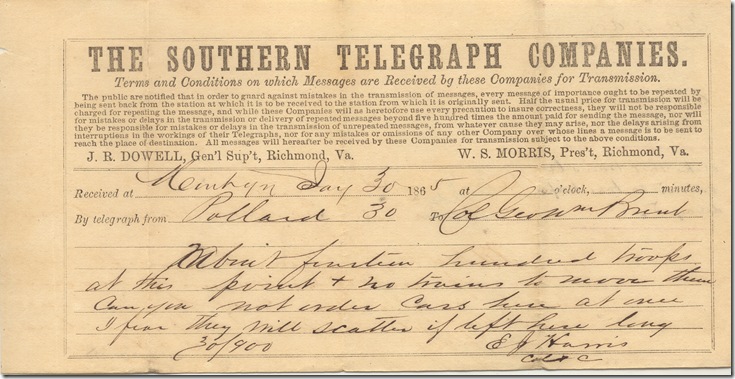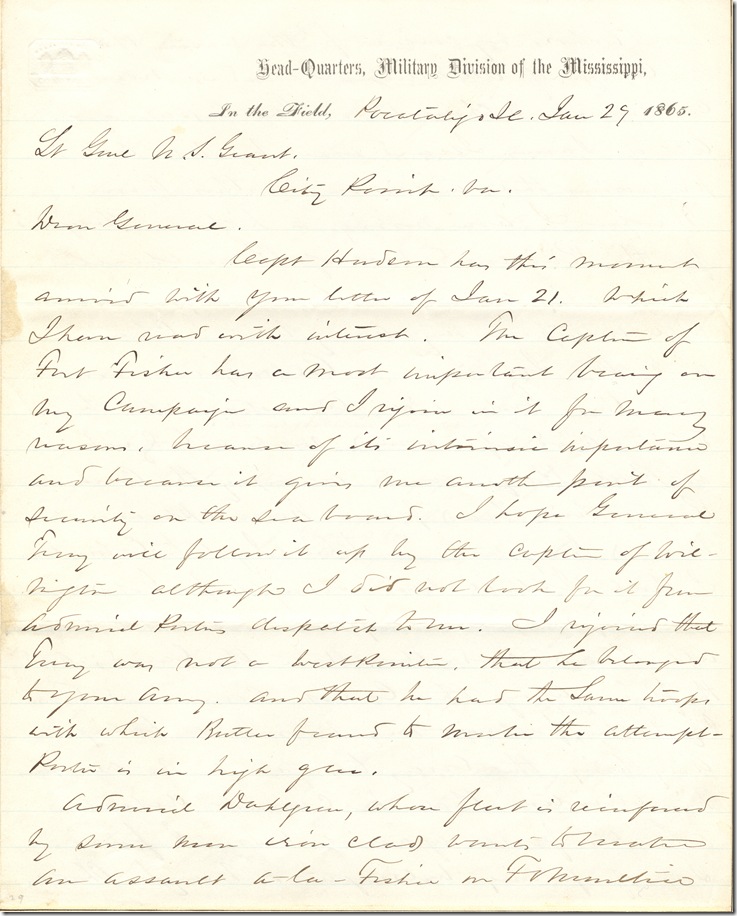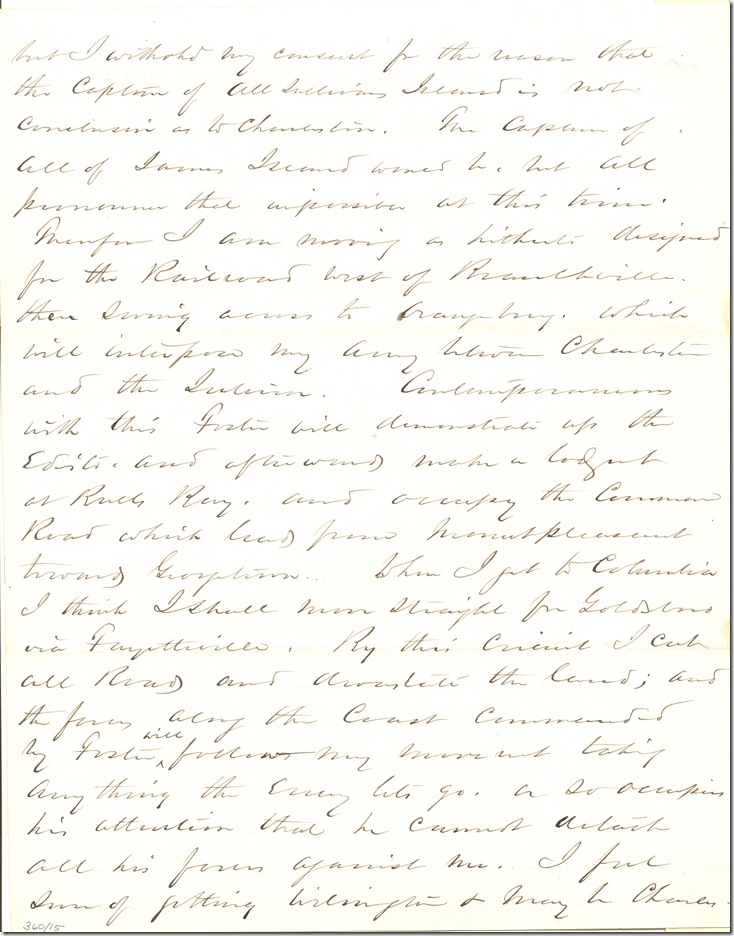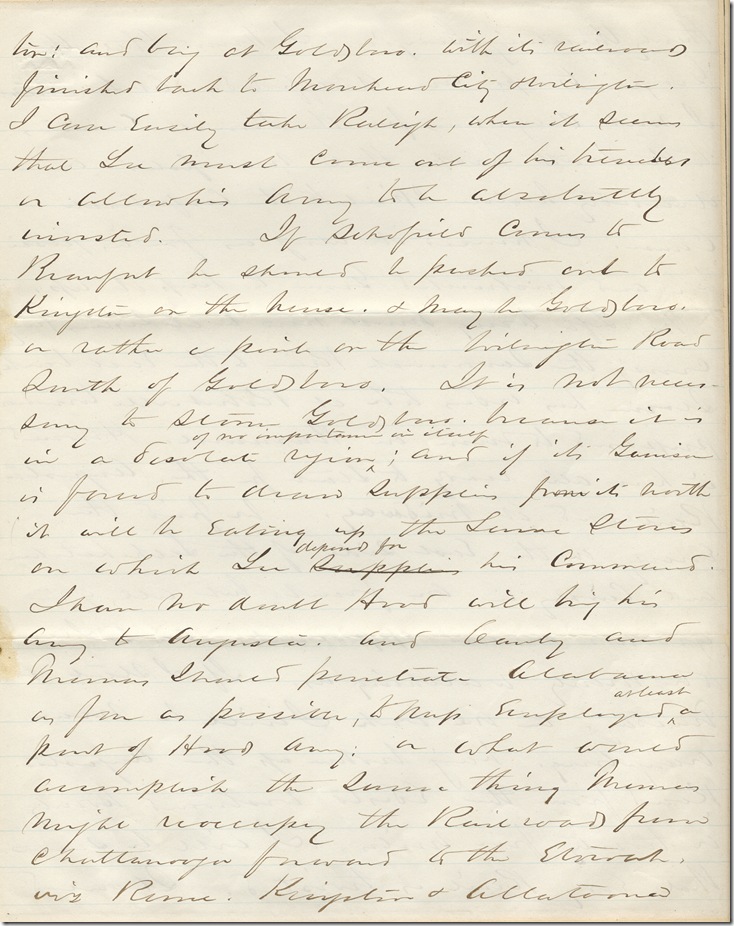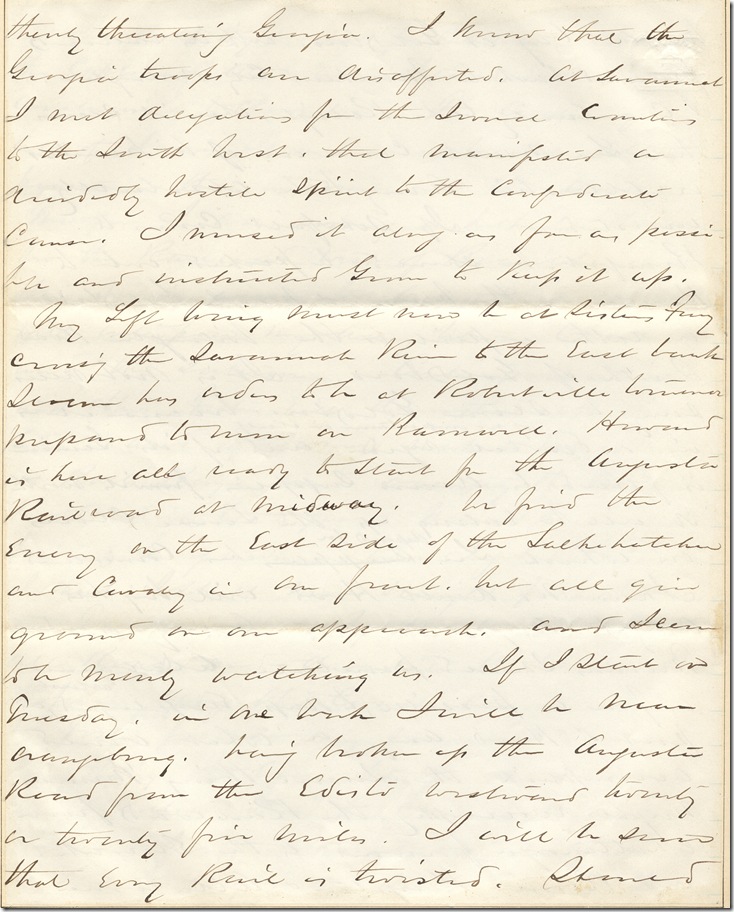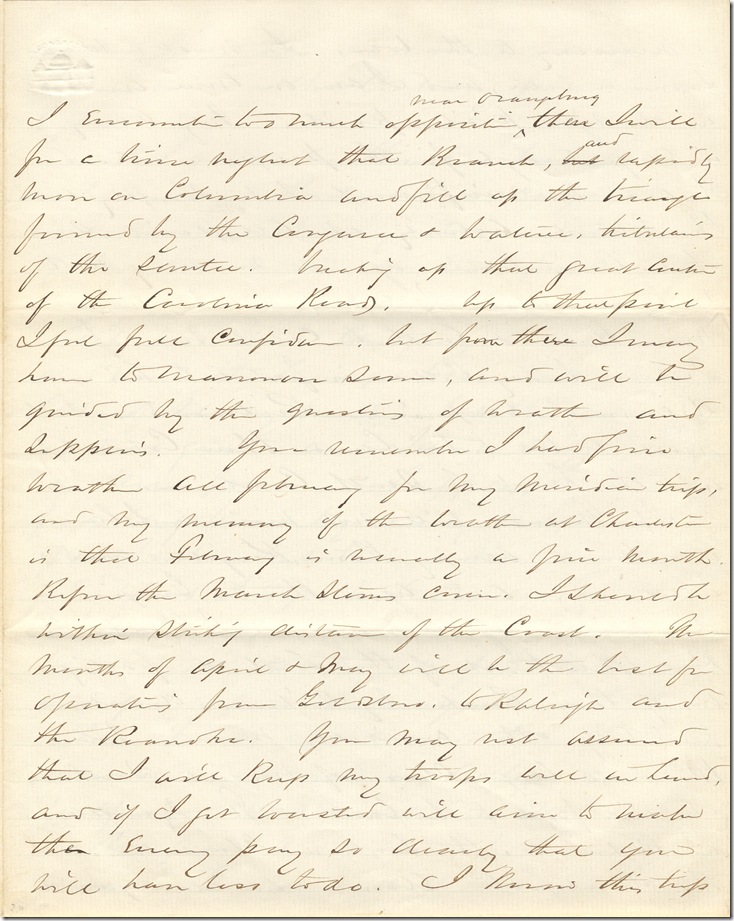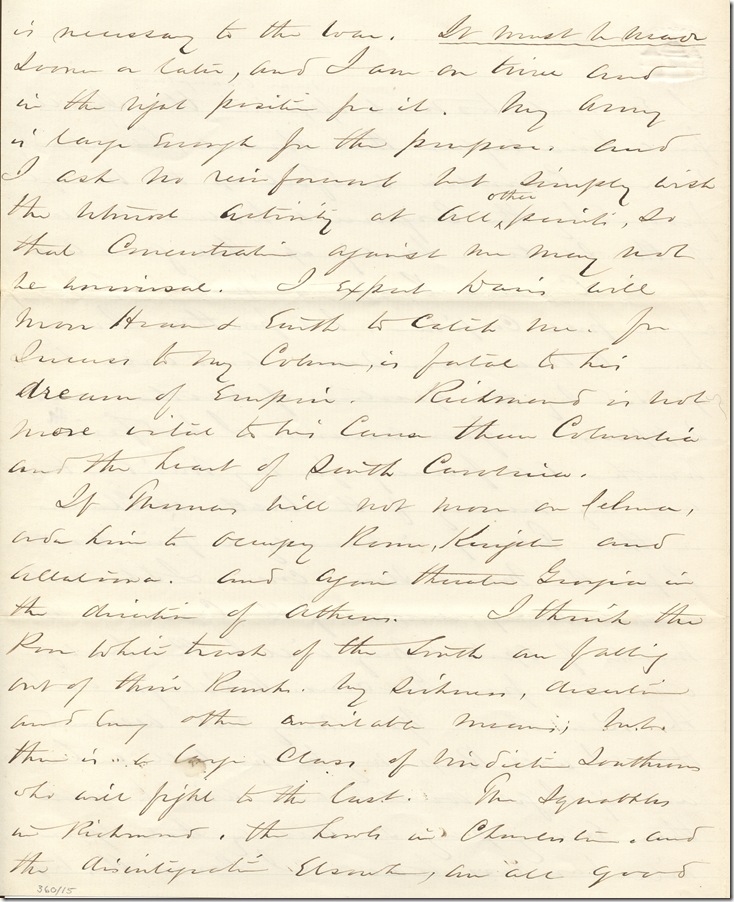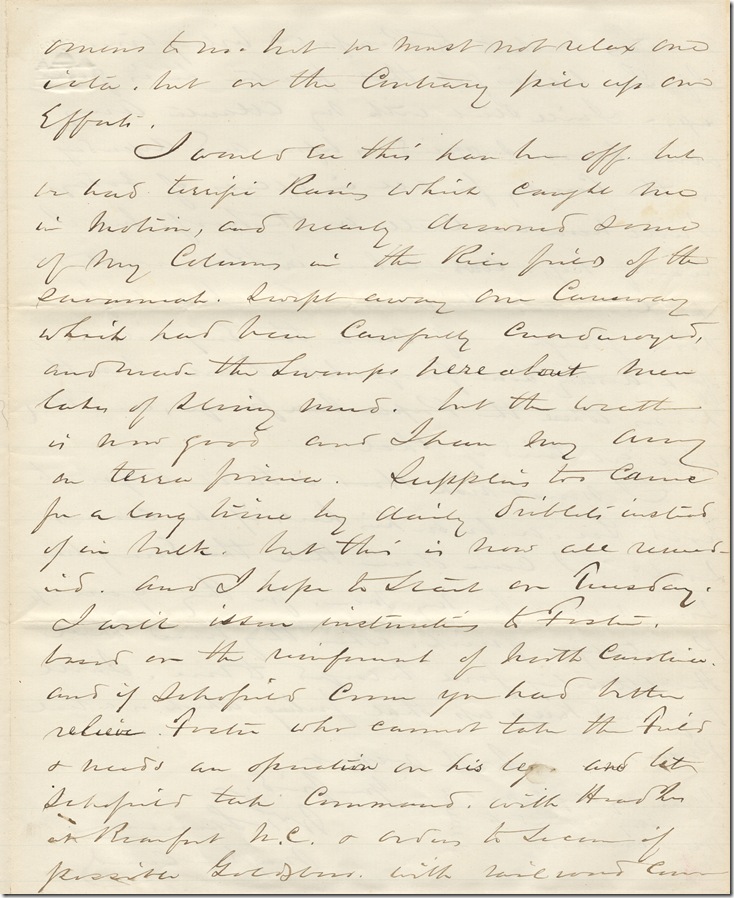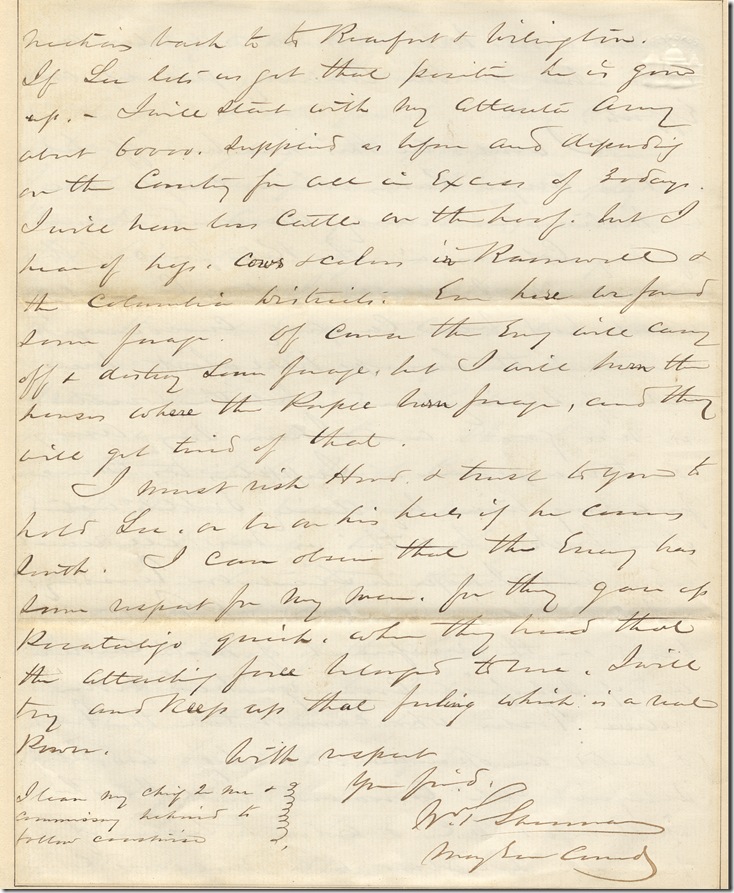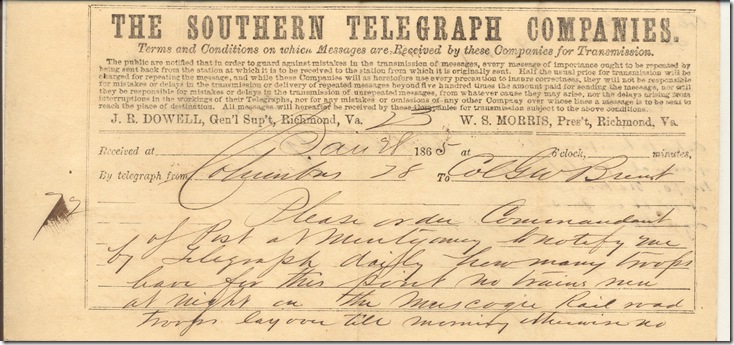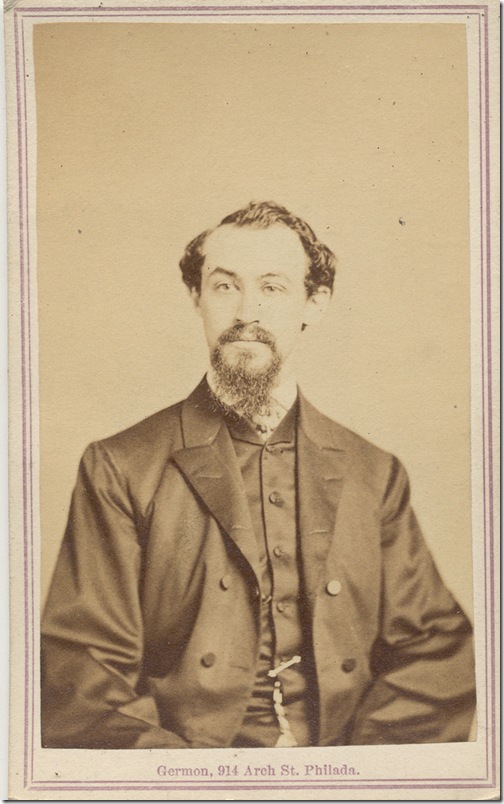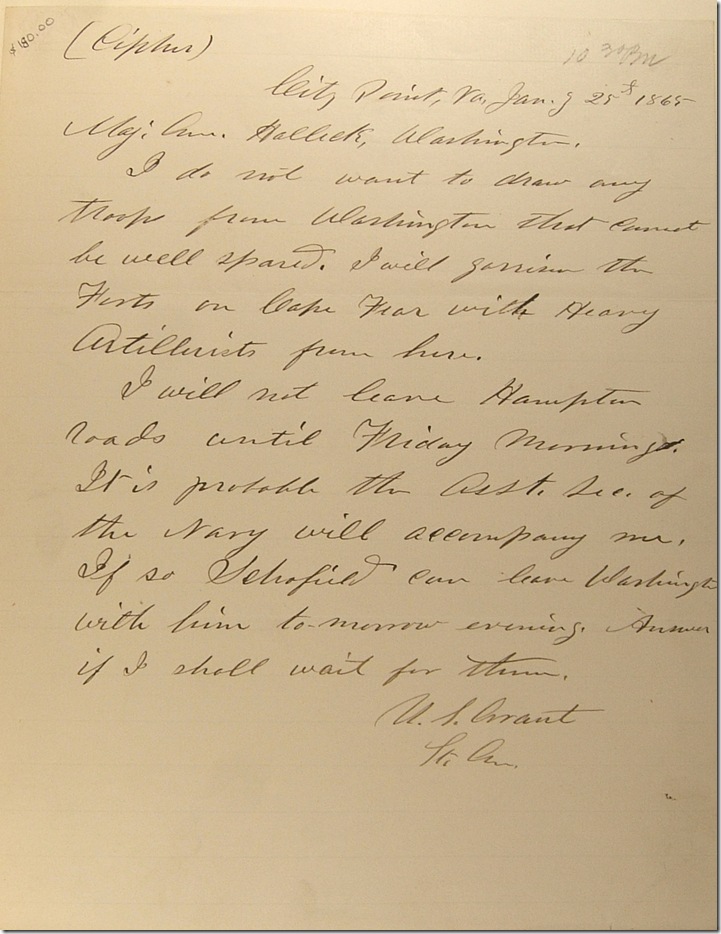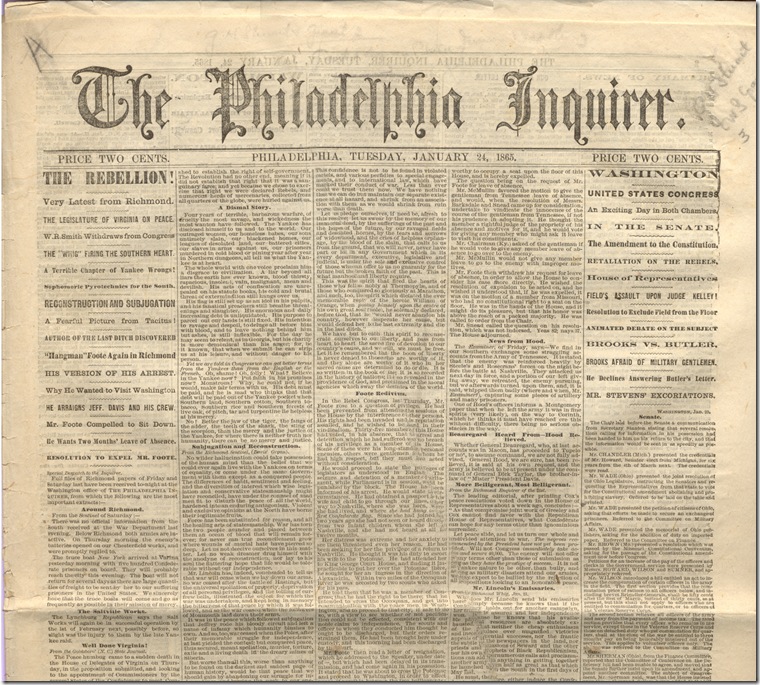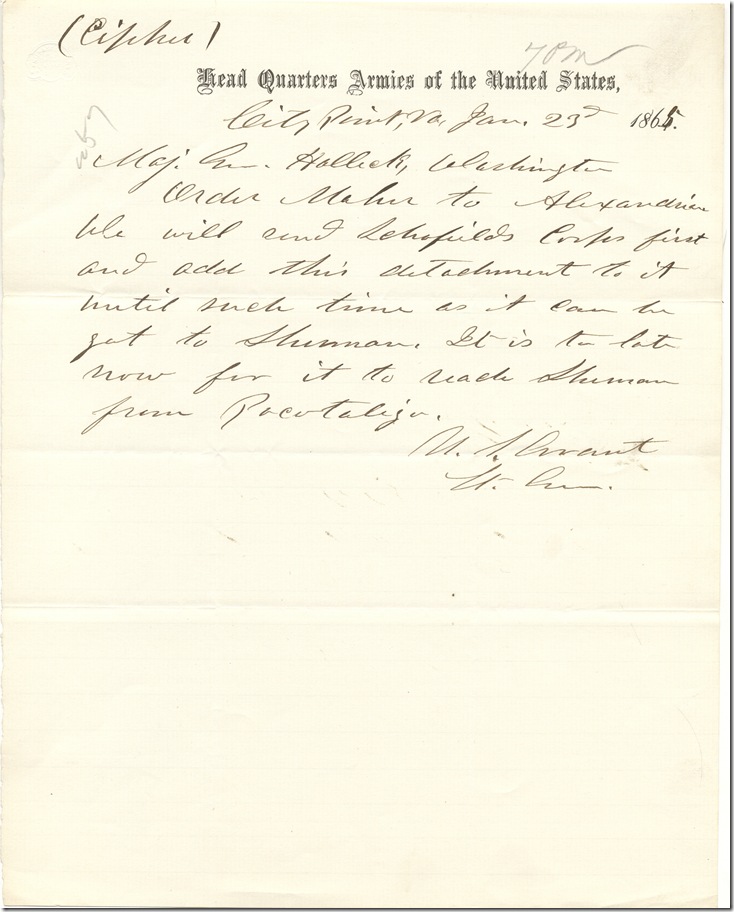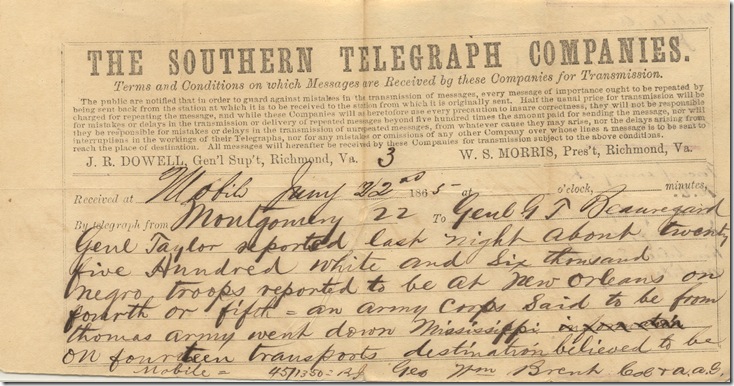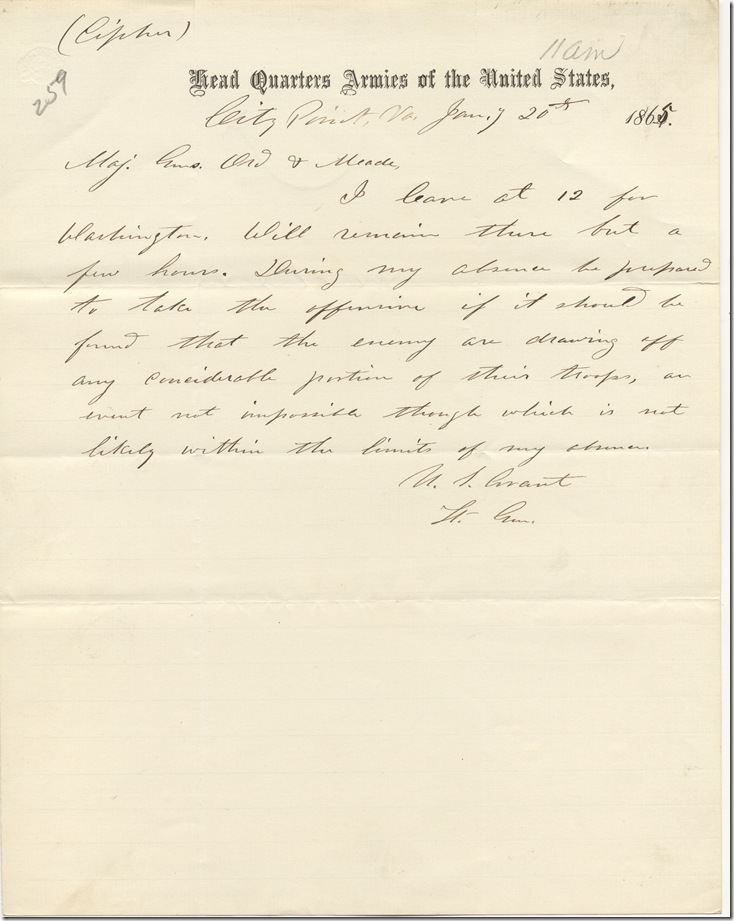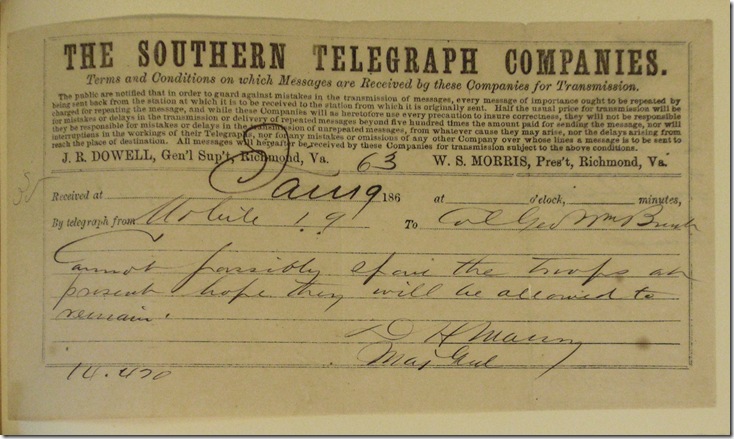Pierre Gustave Toutant Beauregard was a Louisiana-born general of the Confederate States Army. He had graduated second in his class from West Point in 1838 and was an admirer of Napoleon. He achieved fame early in the Civil War for commanding the Fort Sumter bombardment and as the victor of the first battle of Manassas. He later served in the Western Theater (including Shiloh and Corinth), Charleston, and the defense of Richmond, but his career was hampered by friction with Jefferson Davis and other generals.
This is one of approximately 1000 military telegrams in P.G.T. Beauregard’s papers at the Rosenbach.
Transcript:
Received at [illeg.] Jay 30 1865
By telegraph from Pollard 30 To Col. Geo W. Brent
About fourteen hundred troops at this point & no trains to move them. Can you not order cars here at once I fear they will scatter if left here long.
E. J. Harris
Col.
Citation: E. J. Harris, telegram to George W. Brent. 30 January 1865. AMs 1168/11
